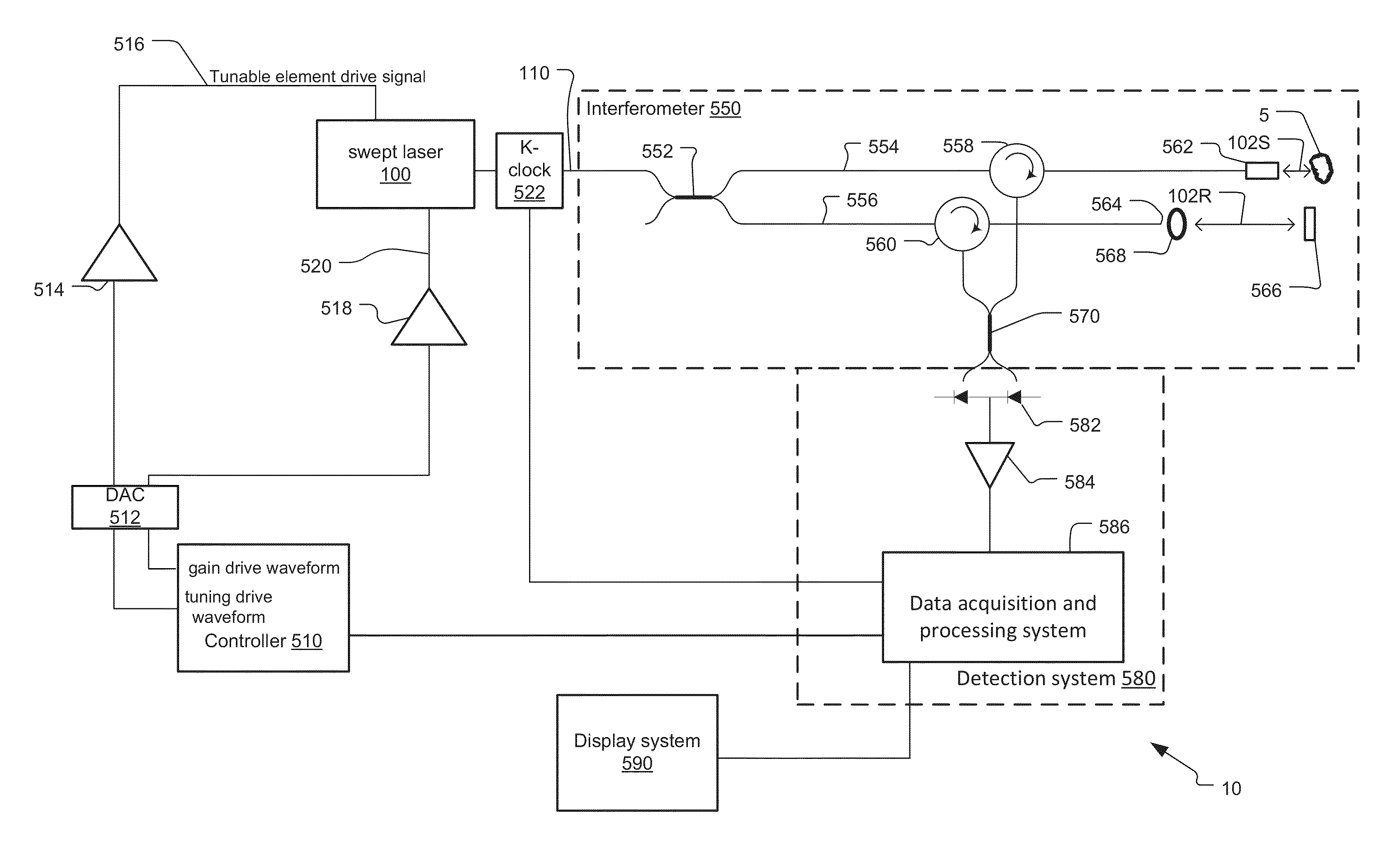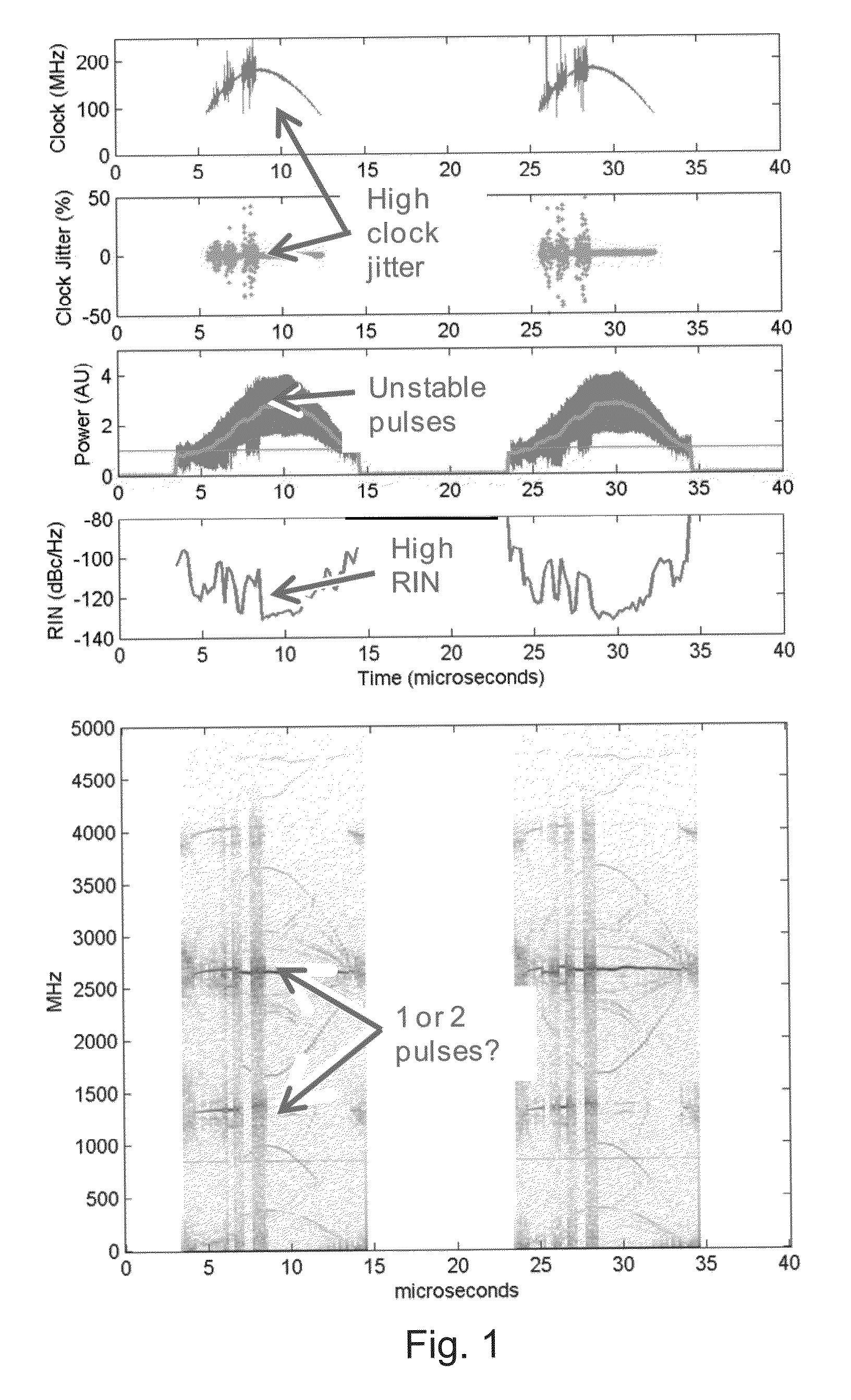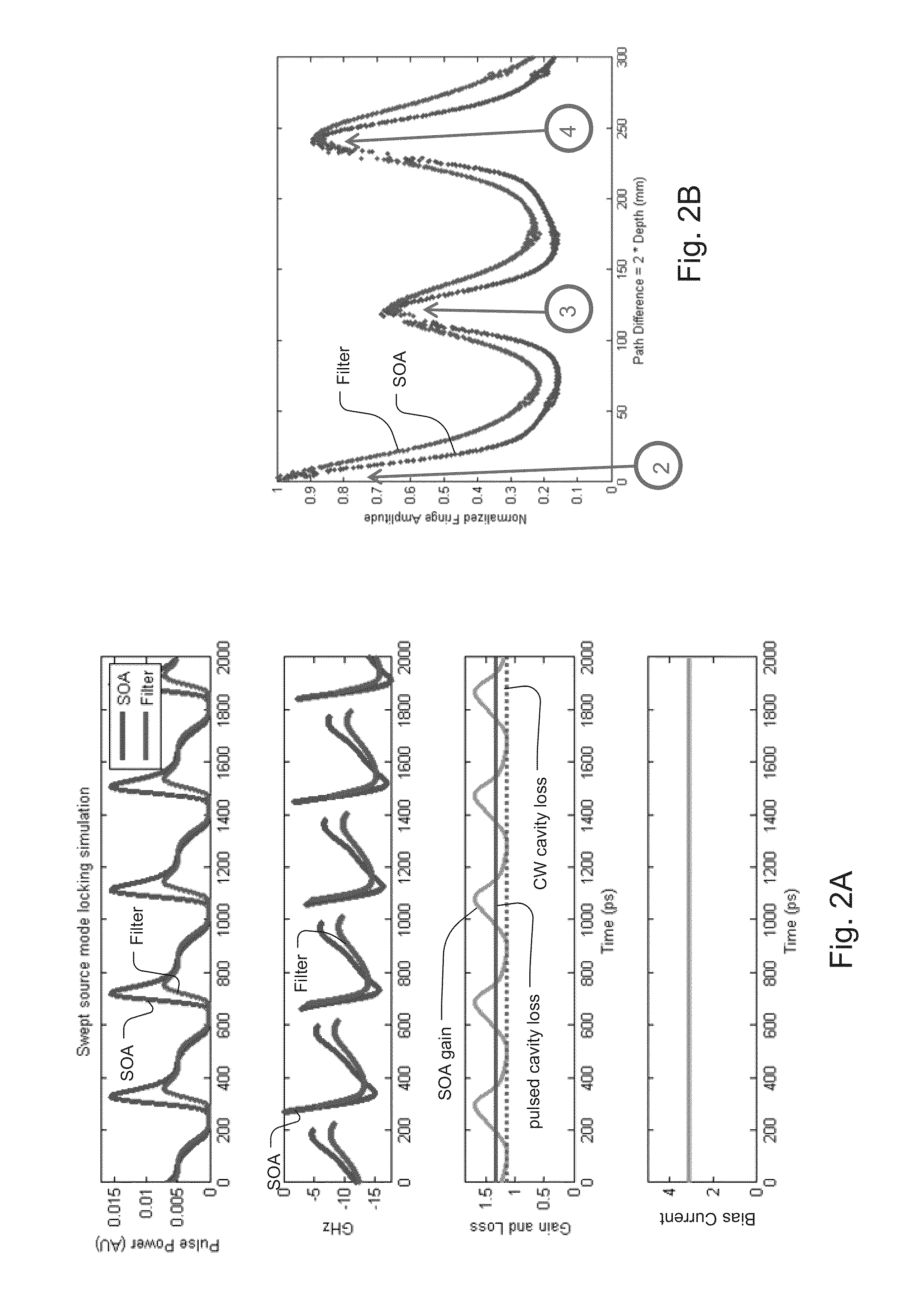System and method for stabilizing mode locked swept laser for OCT medical imaging
a technology of locked swept laser and swept laser, which is applied in the field of system and method of stabilizing mode locked swept laser for oct medical imaging, can solve the problems of greater mode hopping noise, oct system design tradeoffs, and spectral spacing of longitudinal cavity modes of lasers, so as to stabilize the emission characteristics of lasers, avoid noisy disruptions, and stabilize the pulsation behavior of lasers
- Summary
- Abstract
- Description
- Claims
- Application Information
AI Technical Summary
Benefits of technology
Problems solved by technology
Method used
Image
Examples
Embodiment Construction
[0027]FIG. 1 contains plots of the k-clock frequency and clock jitter of the swept optical signal from a passively swept mode locked laser during its frequency sweeping through the scan band where there is no active modulation of the SOA current. The k-clock exhibits high levels of jitter suggesting poor tuning performance. Further, the power output of the swept optical signal from tunable laser is highly unstable over the scan. RIN is also high. The spectrogram shows the existence of pulses in the swept optical signal at approximately 2600 and 1300 MHz. The energy distribution seems to vary over the course of the scan through the tuning band of the laser.
[0028]This uncontrolled pulse behavior during the course of the sweep of the swept optical signal through the scan band is believed to be instigated by the changing characteristics of the laser cavity over the scan band.
[0029]In uncontrolled lasers, the number of pulses in the laser cavity due to swept mode locking has been observe...
PUM
 Login to View More
Login to View More Abstract
Description
Claims
Application Information
 Login to View More
Login to View More - R&D
- Intellectual Property
- Life Sciences
- Materials
- Tech Scout
- Unparalleled Data Quality
- Higher Quality Content
- 60% Fewer Hallucinations
Browse by: Latest US Patents, China's latest patents, Technical Efficacy Thesaurus, Application Domain, Technology Topic, Popular Technical Reports.
© 2025 PatSnap. All rights reserved.Legal|Privacy policy|Modern Slavery Act Transparency Statement|Sitemap|About US| Contact US: help@patsnap.com



